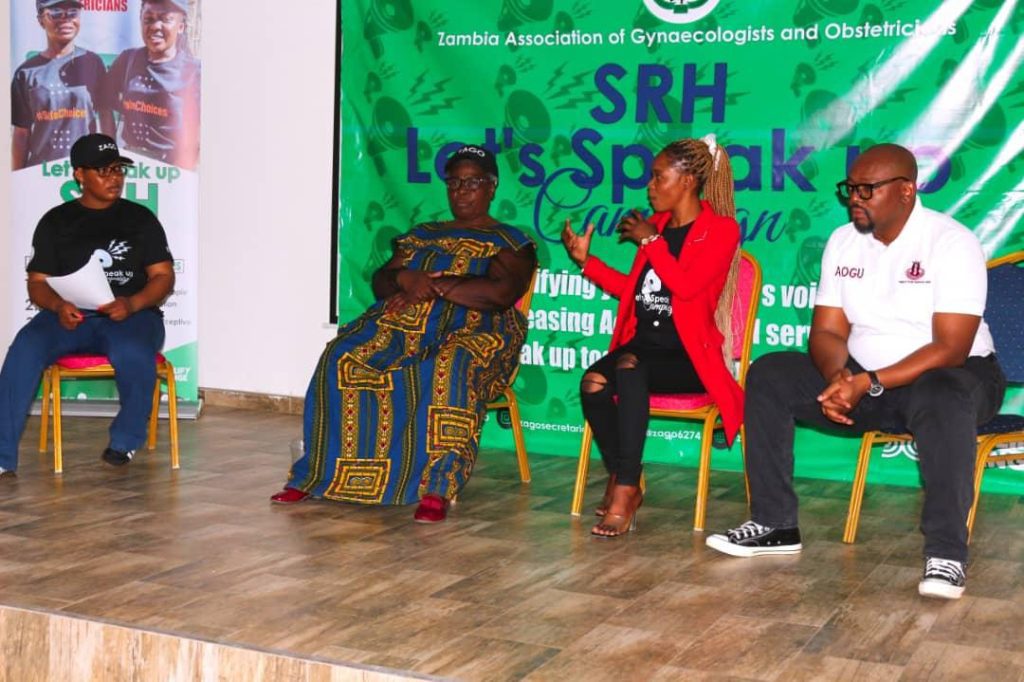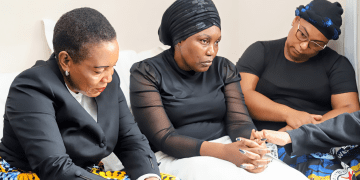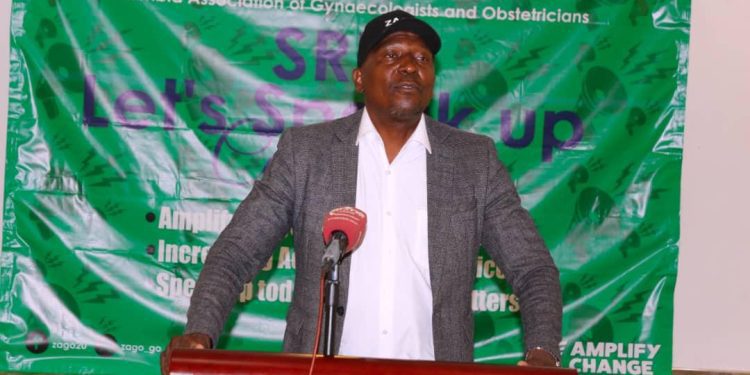By Juliet Makwama
The Zambia Association of Gynaecologists and Obstetricians ZAGO recently expressed concern that despite being a cornerstone of overall health and wellbeing encompassing a broad range of issues such as maternal health, gender equality, access to education and a better life, many still face challenges that prevent them from accessing sexual and reproductive health services in the country.
ZAGO President Swebby Macha emphasised the need for concerted effort to ensure awareness replaces ignorance when it comes to sexual and reproductive health, so that there is access to quality services with everyone having the right to make informed decisions to prevent vices such as teen pregnancies, sexually transmitted diseases STIs and HIV, mental distress, gender based violence and unsafe abortions.

To this effect, the association recently launched a campaign dubbed, “Let’s Speak Up” as a response against sexual and reproductive health barriers, and dismantling the associated stigma by amplifying the voices of adolescents and young people, as well as those who have been silenced for a long time.
Speaking during the launch of the campaign, Dr Macha explained that through education, advocacy and community dialogues, stakeholders will work together to ensure everyone has knowledge and access to the needed sexual and reproductive health services.
The launch was attended by community leaders and members, parents, youths and health experts among others, and the campaign aims to improve access to, and use of sexual reproductive health services by adolescents and young people.
Dr Macha urged stakeholders to reflect on the power of their voice as experiences can ignite change.
“Think of the countless individuals and families who will benefit from our collective efforts. Think of the adolescents and young people who will grow up in a Zambia where their voices are recognized and respected. Think of the lives that we, together can save and the families that we can empower,” Dr Macha emphasized.
Dr Macha however highlighted that in many parts of the world, Zambia inclusive, discussions about sexual and reproductive health are shrouded in stigma and silence, with important conversations about the body being sidelined, but that it is time to change that narrative.
Dr Macha said in this campaign, participants must reach out to health care providers, educators, parents and guardians, traditional leaders, policy makers and many more, while United Nations UN agencies and everyone who believes in the importance of access to sexual and reproductive health services should help bridge the gap between research and practice, turning advocacy into tangible policy change.
During the launch which had panel and plenary sessions, stakeholders including young people discussed that differences in attitudes, beliefs and values arising from generational gaps between parents or guardians, and their children have continued to be a hindrance in as far as parents talking to adolescents about sexual and reproductive health is concerned, despite the great need to do so.
Youth Advocate Willingtone Precious said despite efforts by some parents to bridge this generational gap by encouraging open communication with their children regarding sexual and reproductive health matters, it is still a taboo in most households for parents to discuss sexuality with their children, a situation that has potential to expose adolescents to wrong information which will lead to them making sexual health related mistakes that may haunt them for the rest of their lives.
His concern is that mistakes arising from lack of information on sexual and reproductive health can lead to contraction of HIV AIDS and other sexually transmitted infections STIs, or in the case of girls, unintended early pregnancies that could expose them to medical conditions such as fistula, a situation that has long lasting effects on their wellbeing.
Wiilingtone is however elated that some parents and guardians from today’s generation have taken it upon themselves to talk to their children about sexual and reproductive health rights, and is hopeful that more parents will follow suit so that adolescents are not misled, to avoid costly mistakes.
Meanwhile, ZAGO acknowledges that sexual and reproductive health rights SRHR in the country are critical aspects of the country’s public health agenda, intersecting with issues of gender equality, human rights and sustainable development.
It also acknowledges that there is a poor health seeking behavior among adolescents, and that their access to and use of general health services needs to improve.
This is despite the availability of youth friendly spaces, youth clubs and peer educators at health facilities, with HIV clinics providing safe spaces for adolescents to discuss the issues they face.
But Imbuwa Muliwana, a parent who attended the meeting did express concern that in some cases, adolescents are hesitant to go to health facilities to get more information about sexual and reproductive health because some health personnel actually scold them for seeking such information as they consider them too young.
She said adolescents do all sorts of things as a result of being exposed to wrong information, and parents need to be in the forefront to ensure young people are made more aware of issues related to sexual and reproductive health.
Ms Muliwana warned that if parents do not talk to their children about sexual and reproductive health, adolescents will be open to wrong information as the age they are growing up in is different from the days when today’s elders were young.
Meanwhile Benson Banda, another parent who is also a community leader noted that in some cases, today’s generation of children bring in the issue of human rights when they are being corrected over their mistakes.
Mr Banda however implored parents and guardians not to relent in correcting adolescents saying the days they are growing up in are different from the old days and there is need to be tactical about how this is done.
Mr Banda said because of this human rights aspect that children bring up, even teachers in school are skeptical about disciplining them, and parents must therefore take the responsibility to ensure adolescents have adequate information.






































